Recently, Intel and AMD have unveiled a multitude of new hardware, including the incredibly fast PCI-E Gen 5.0 and USB4 protocols. However, these are only accessible on premium motherboards, and the mainstream platforms are still struggling to keep up with the confusing 20 Gbps USB ports (USB 3.2 Gen2x2), which were the fastest option for external drives, excluding Thunderbolt.

In this regard, the PC hardware manufacturer Sabrent has unveiled its newly revamped external storage solution, the Rocket Nano V2. This drive features the latest USB 3.2 Gen2x2 interface, boasting a maximum potential bandwidth of 20Gbps. Equipped with an NVMe SSD, the Rocket Nano V2 is capable of delivering impressive sequential read/write speeds of up to 1500MB/s, housed within a durable aluminum casing.
Buy From Sabrent’s Website Buy From Amazon
Sabrent sent me a model to test, so today in this article you will find a detailed review, unboxing, and some tests of Sabrent’s latest external storage drive. Before starting the review, let’s take a quick look at the main specifications of this device.
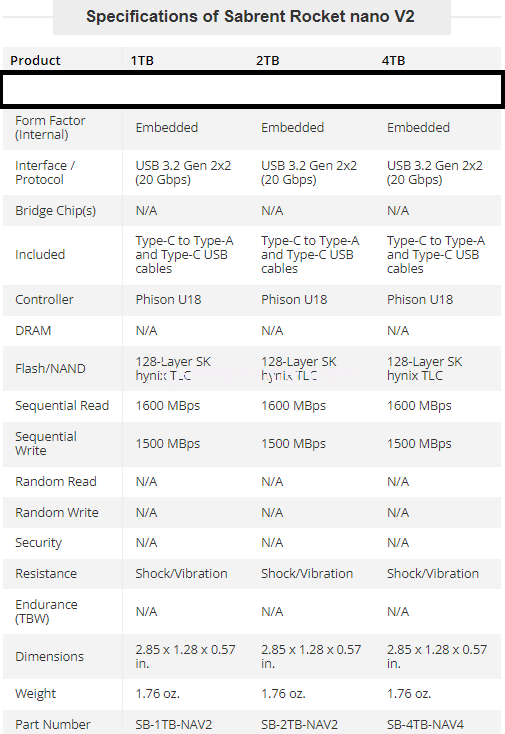
Unboxing
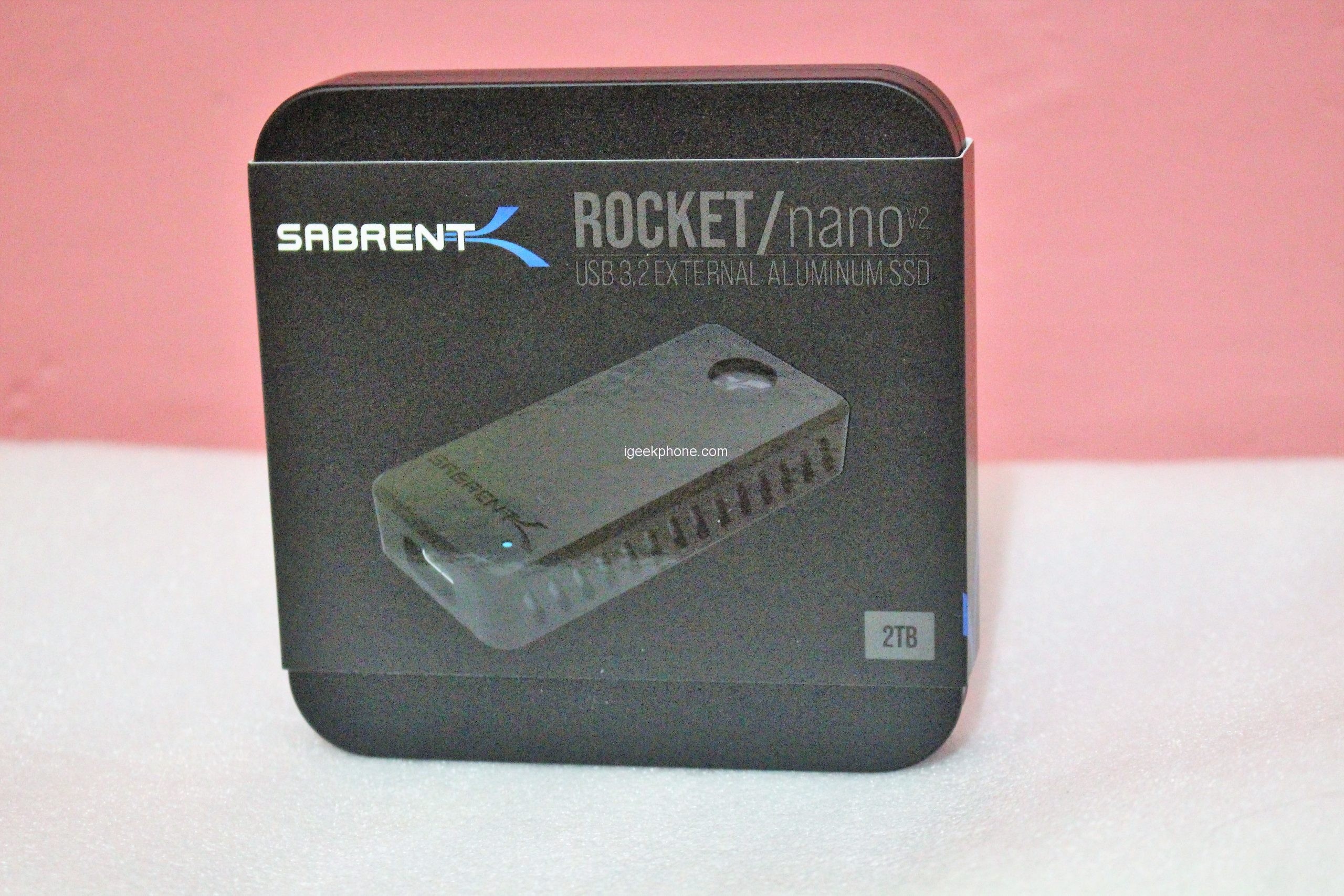
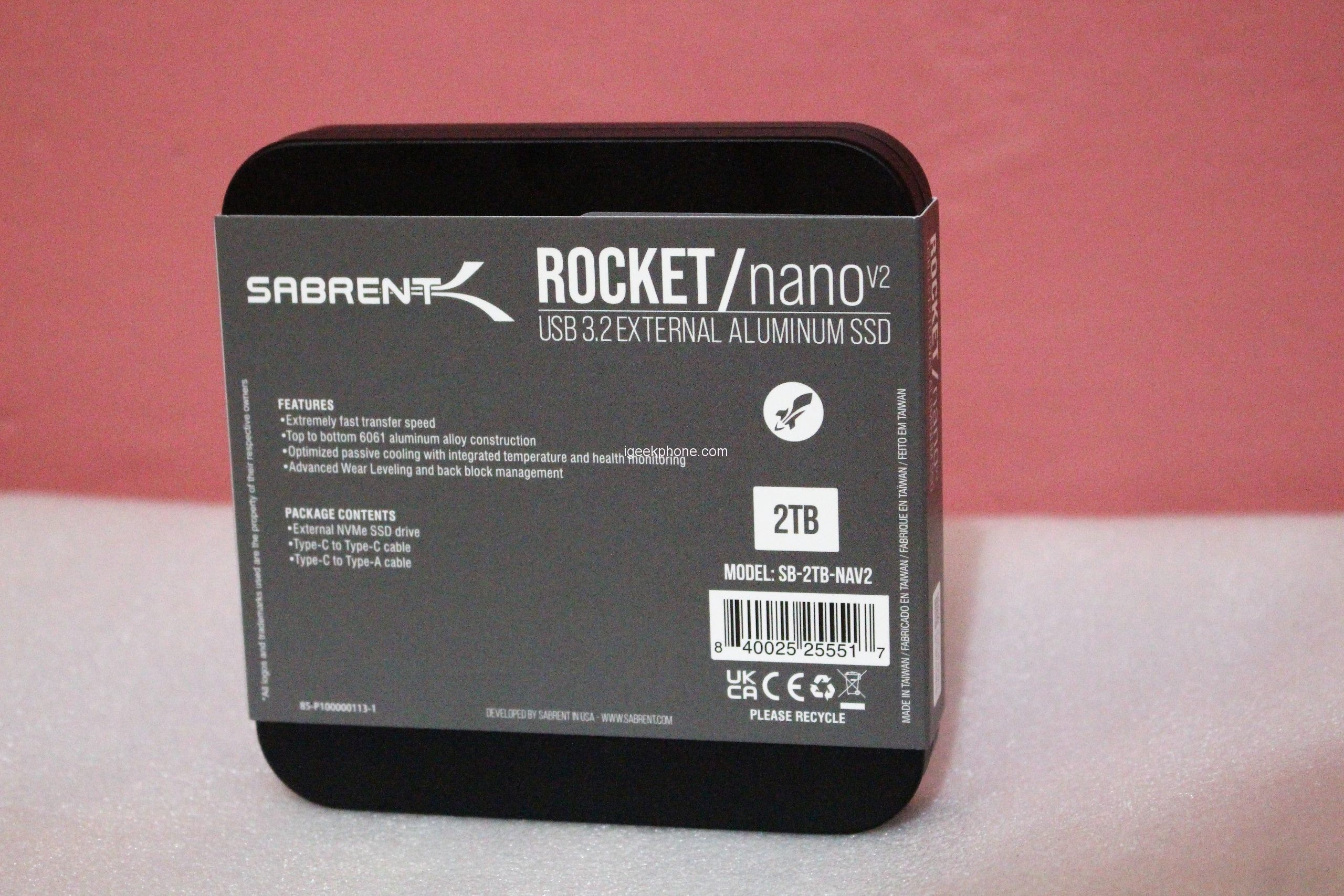
Sabrent’s customary metal enclosure for all of its storage devices is also present here. It even matches the SSD inside with its darker theme. Thus branding is excellent and all of the most important specs are easily visible on both sides.
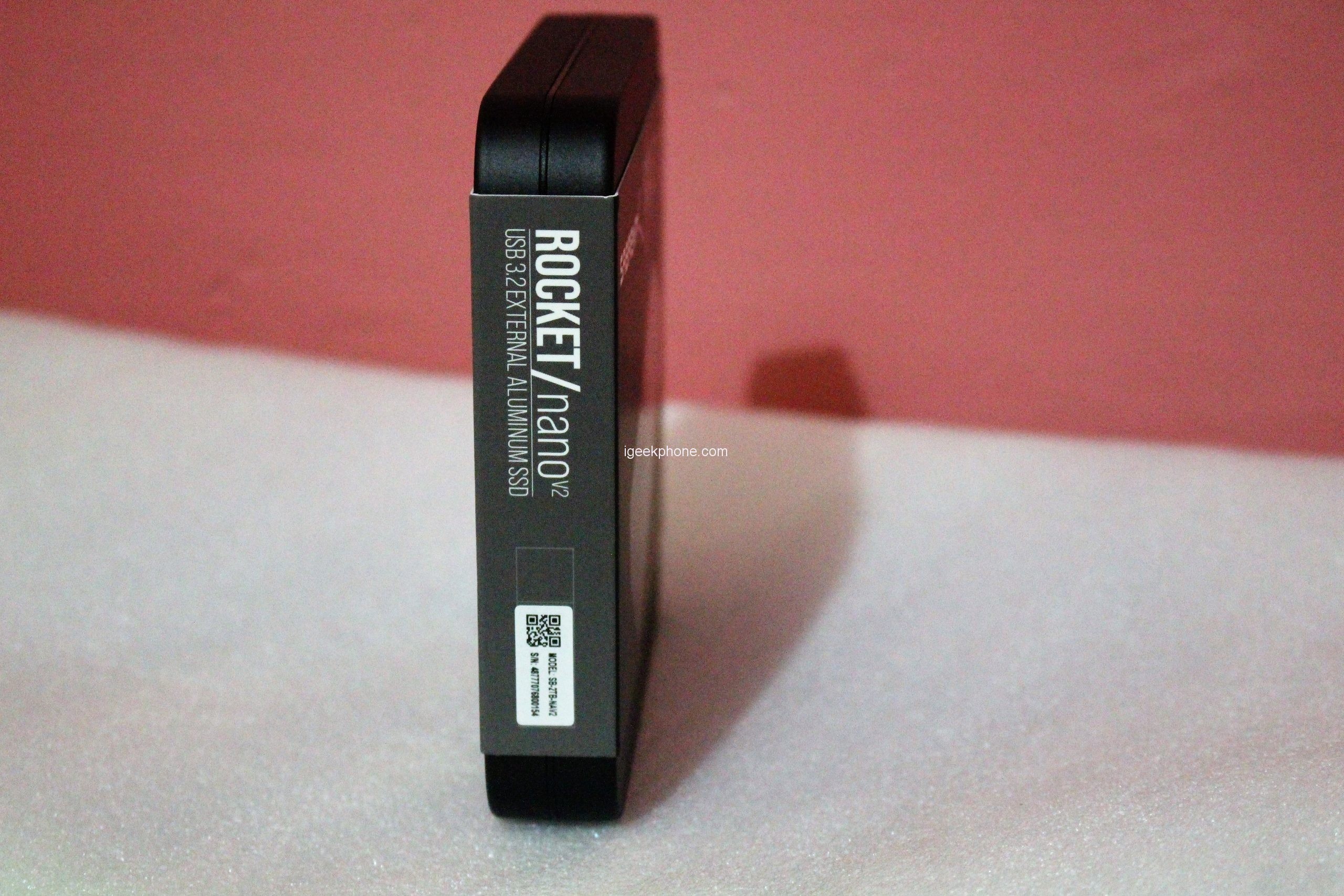
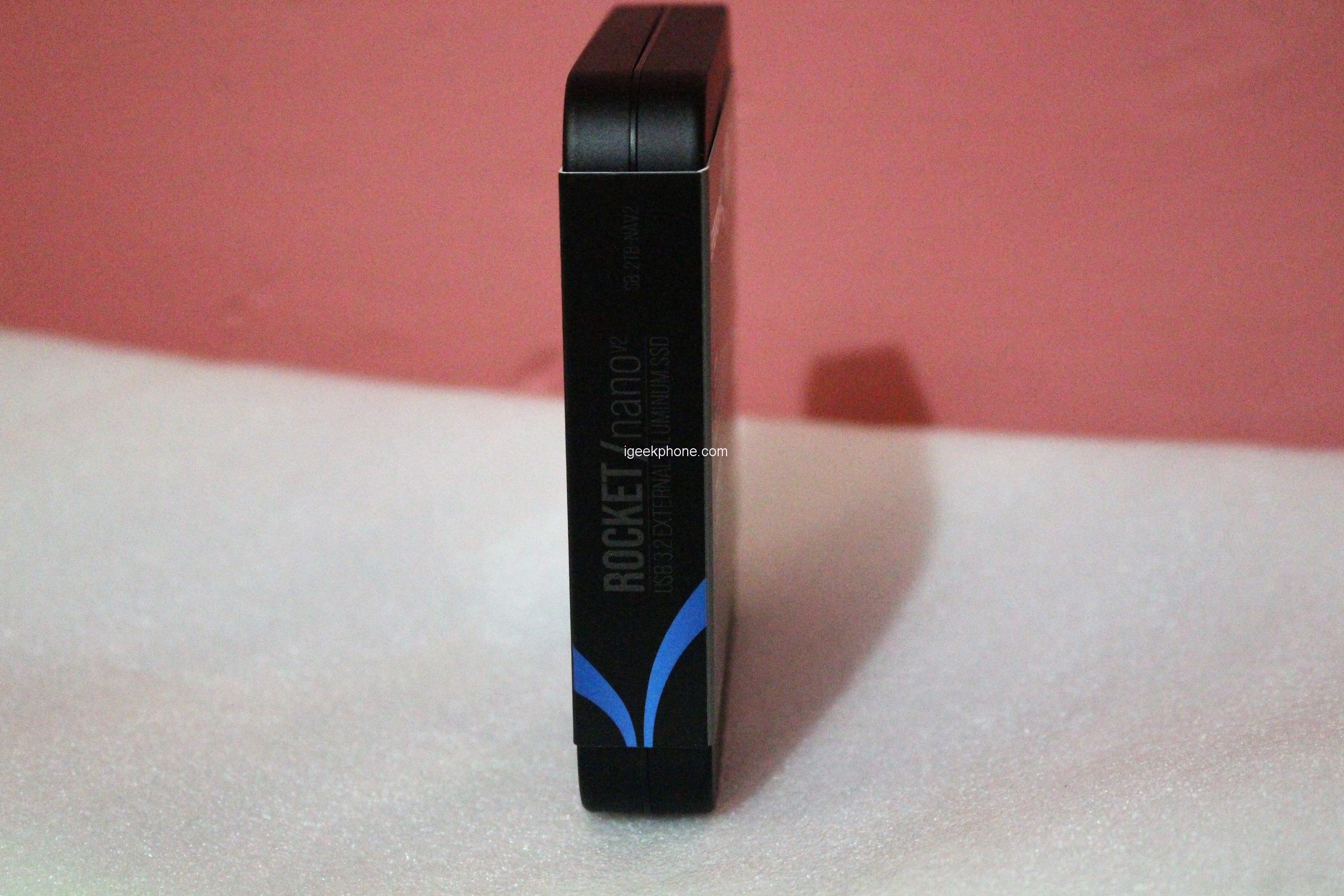 The model information for the drive is displayed on the side of the cover.
The model information for the drive is displayed on the side of the cover.
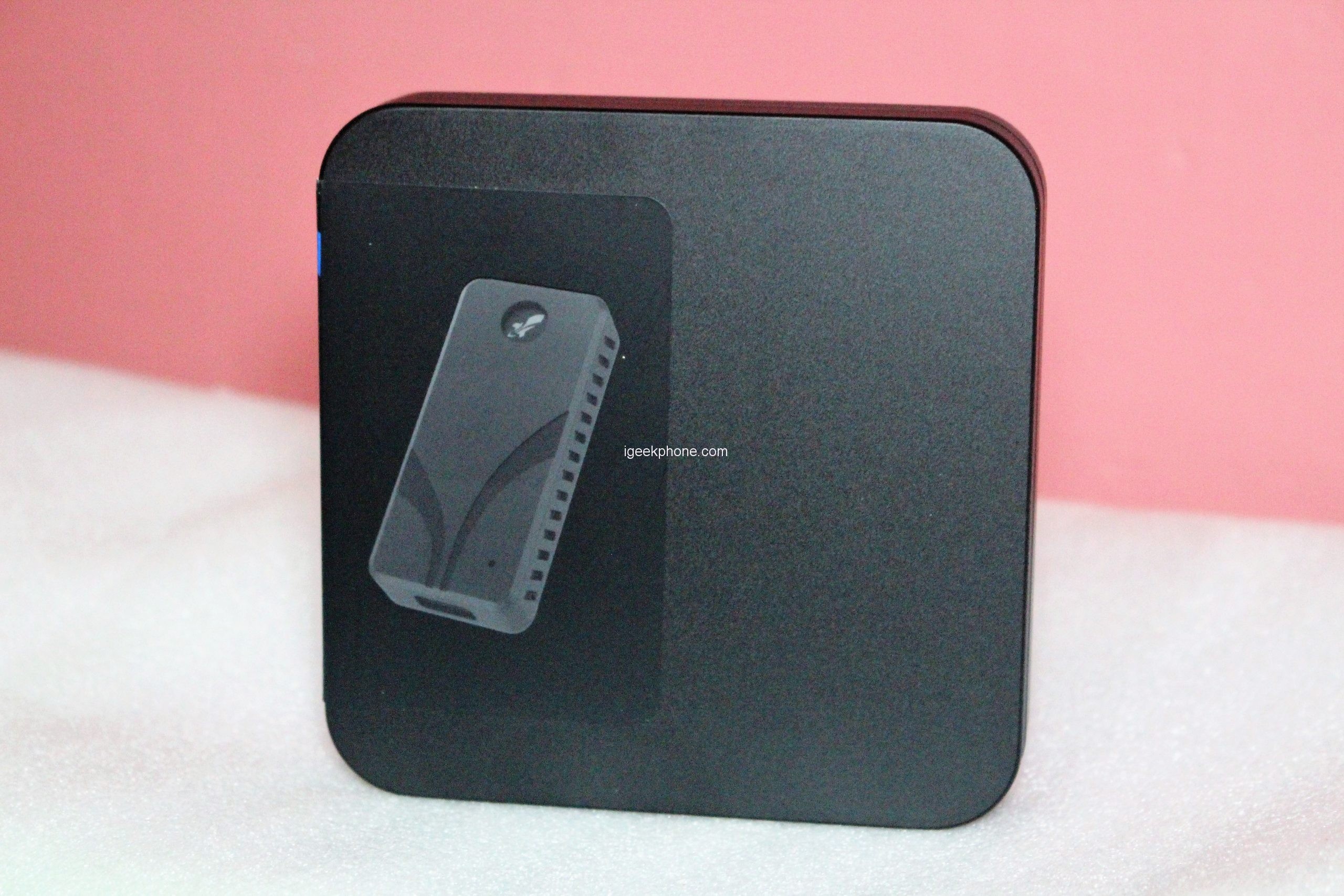
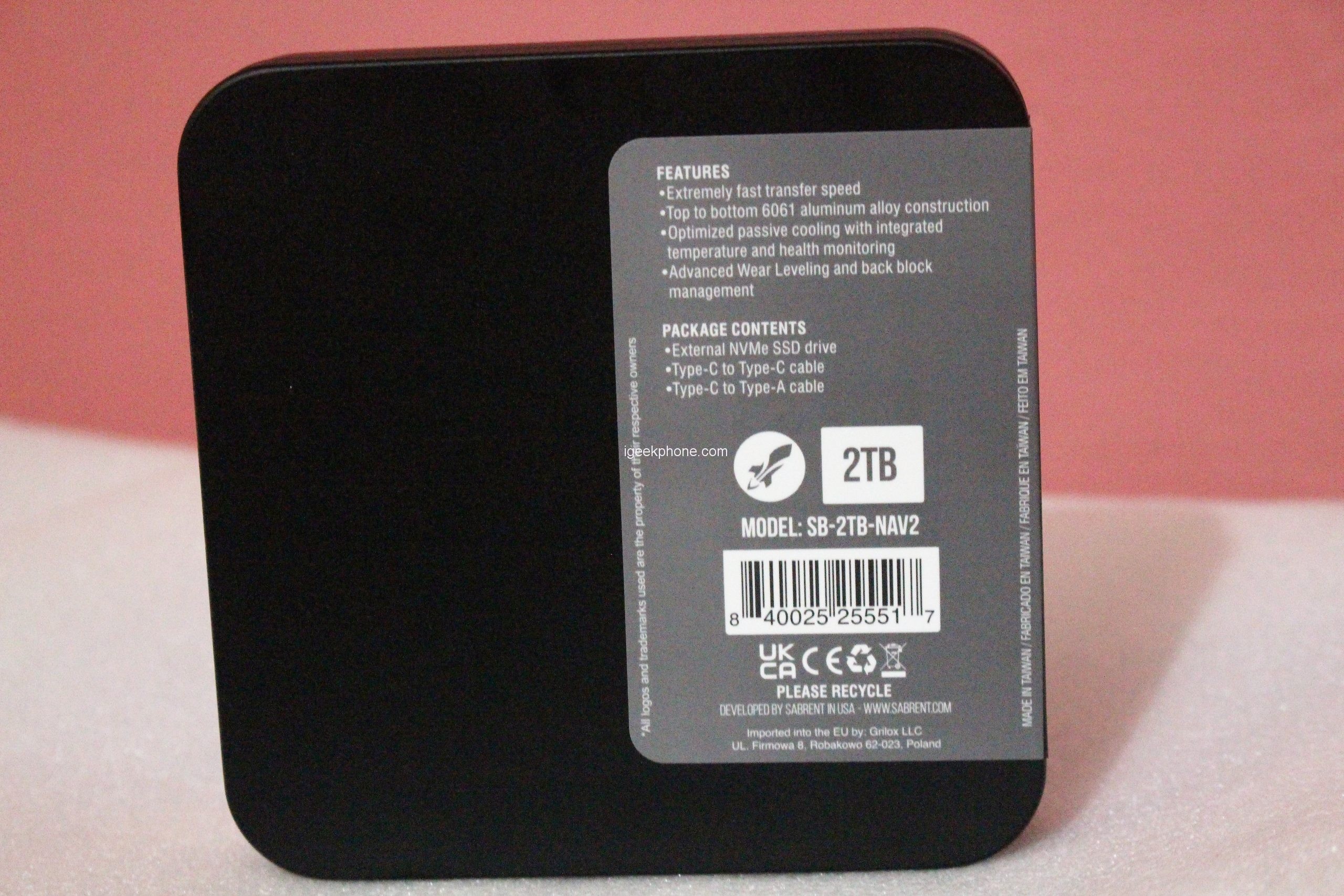
After removing the cardboard packaging, the features and contents of the box are listed on the back side of the box as well.
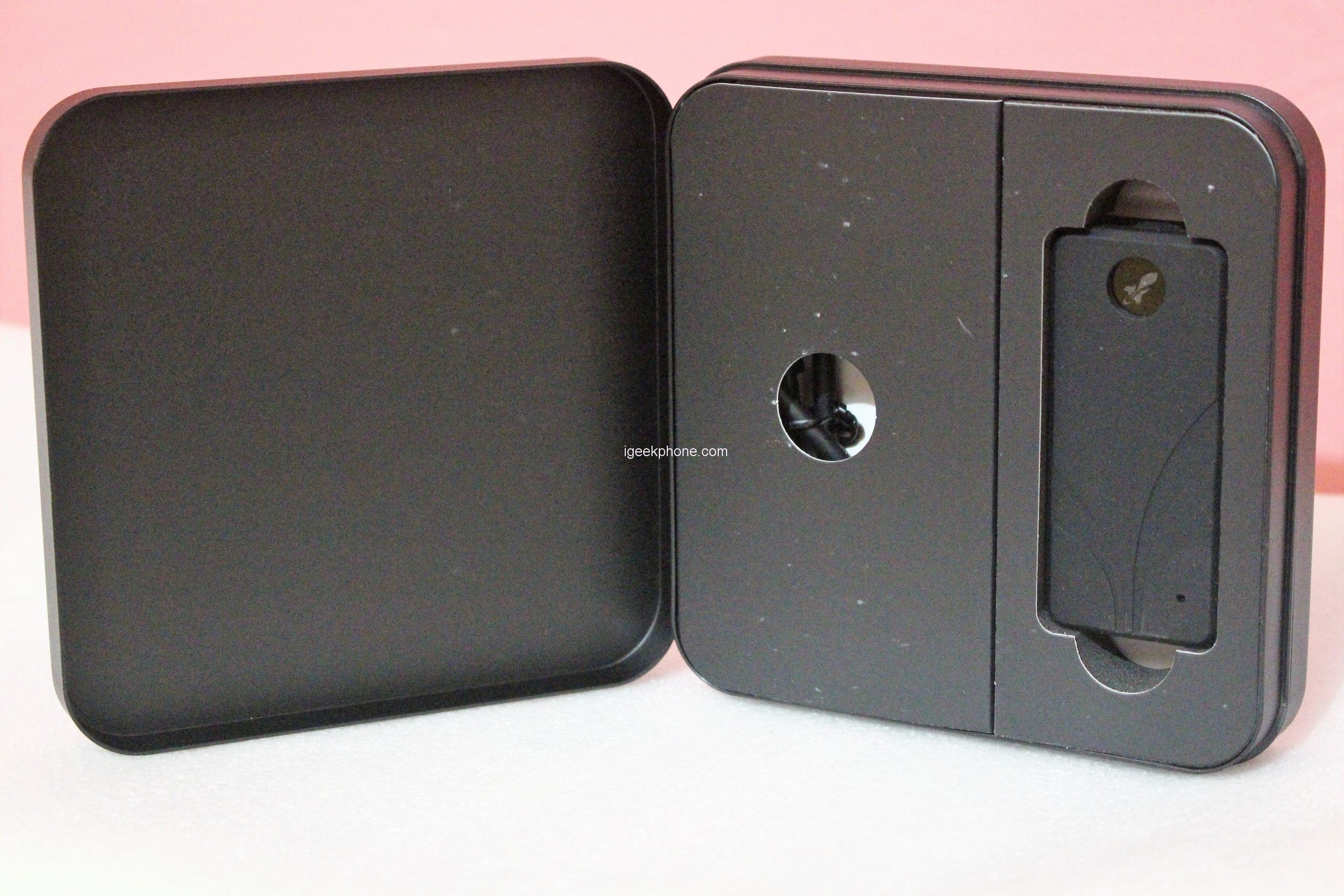
When opening the box, which by the way is made of aluminum, we see the portable in black, which is extremely small and on one side the space for the cables is what it presents to us Sabrent in this portable of the brand. The design and the material used is of the highest quality, offering solidity, as we mentioned, it uses ionized aluminum, which gives us excellent quality and finishes.
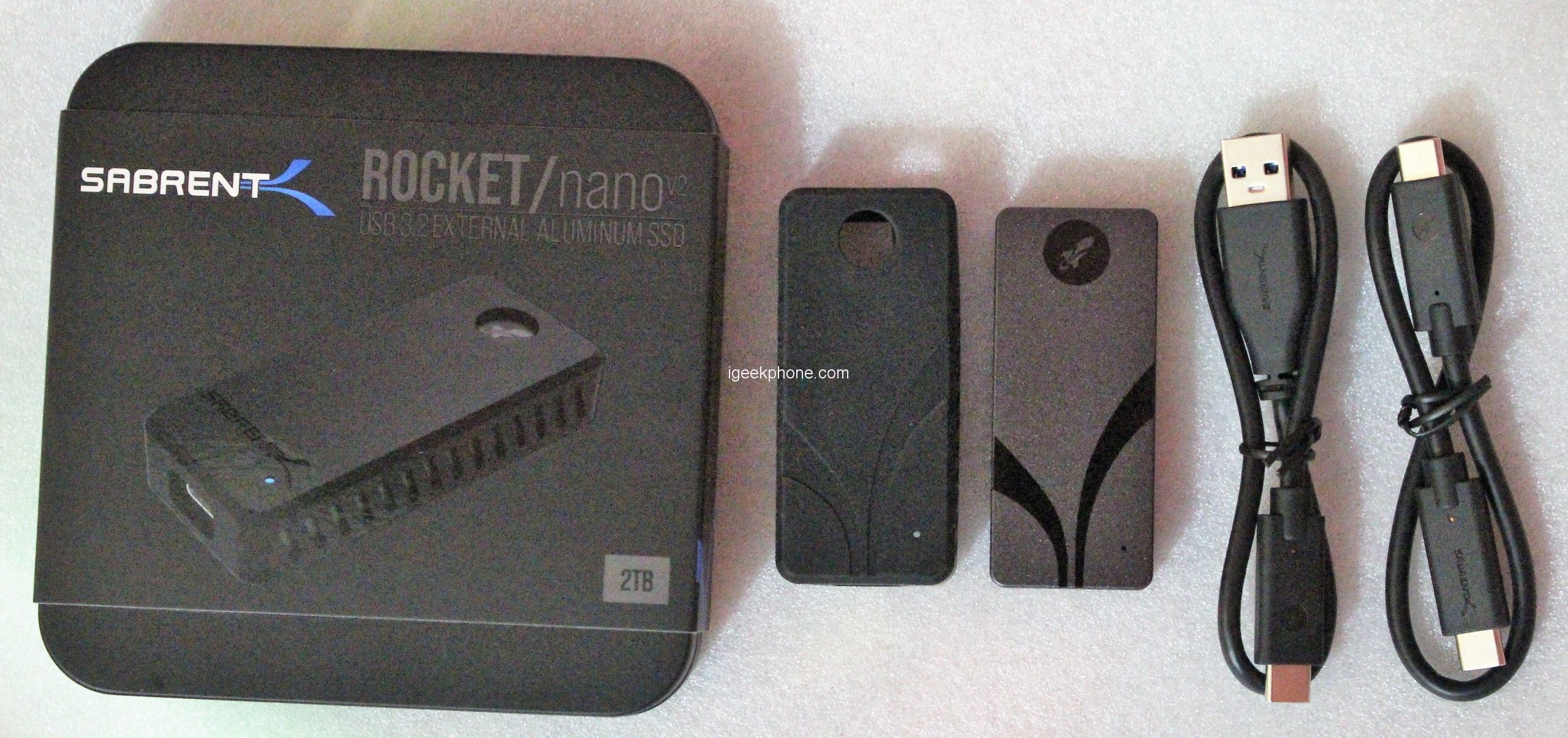
The above picture shows the all contents of the box.
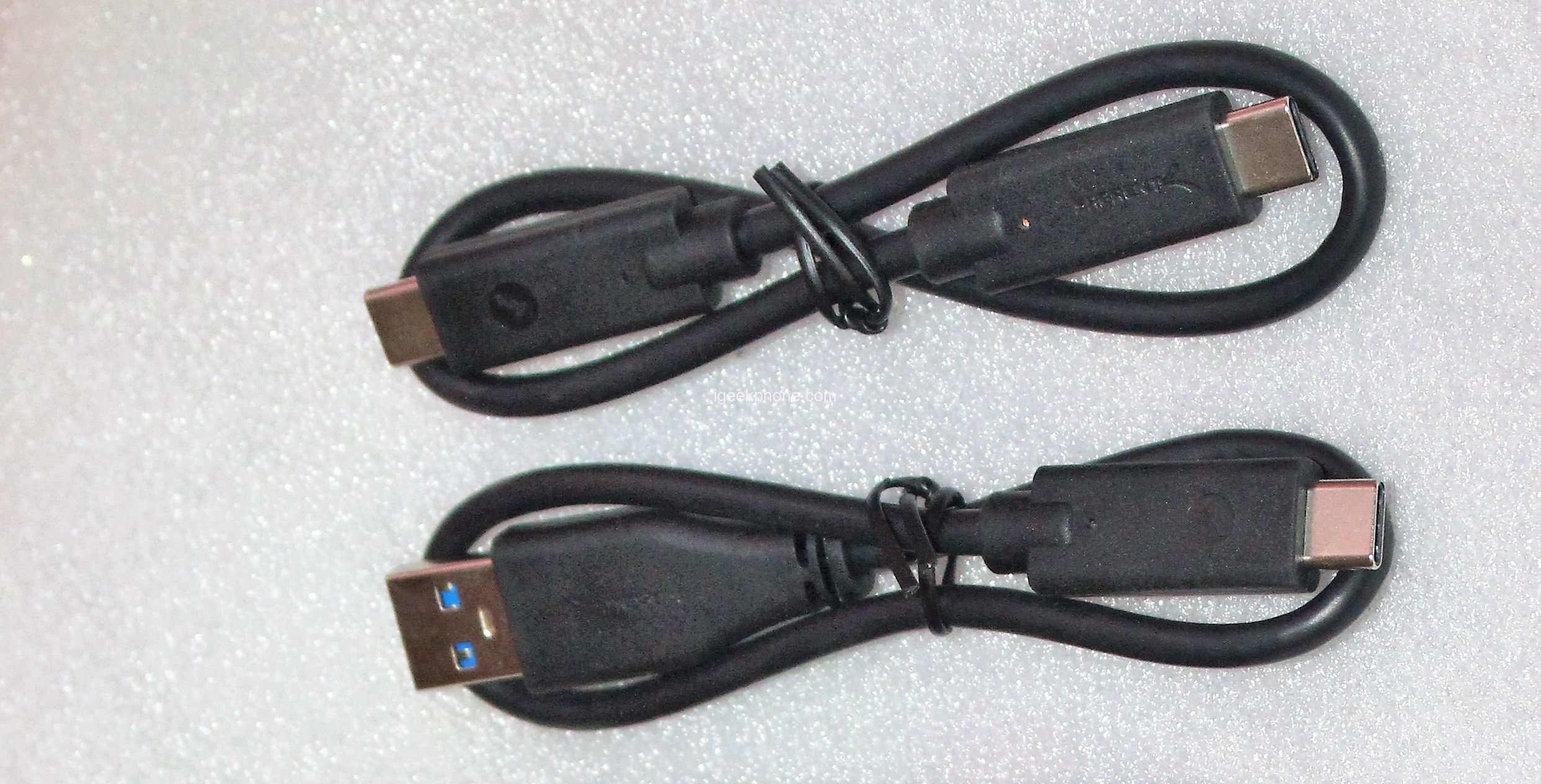
With the use of USB Type-A, the user can connect the drive to any available USB port in their system, though the transfer rate may be reduced. The limited length of Type-C to Type-C cables could pose a challenge when connecting the drive directly to a PC. The Sabrent Rocket Nano series drives offer versatility for users as they are compatible with both Microsoft Windows and MAC OS. These drives feature a plug-and-play design, eliminating the need for any software, and are compatible with previous USB protocols.
Design and Appearance
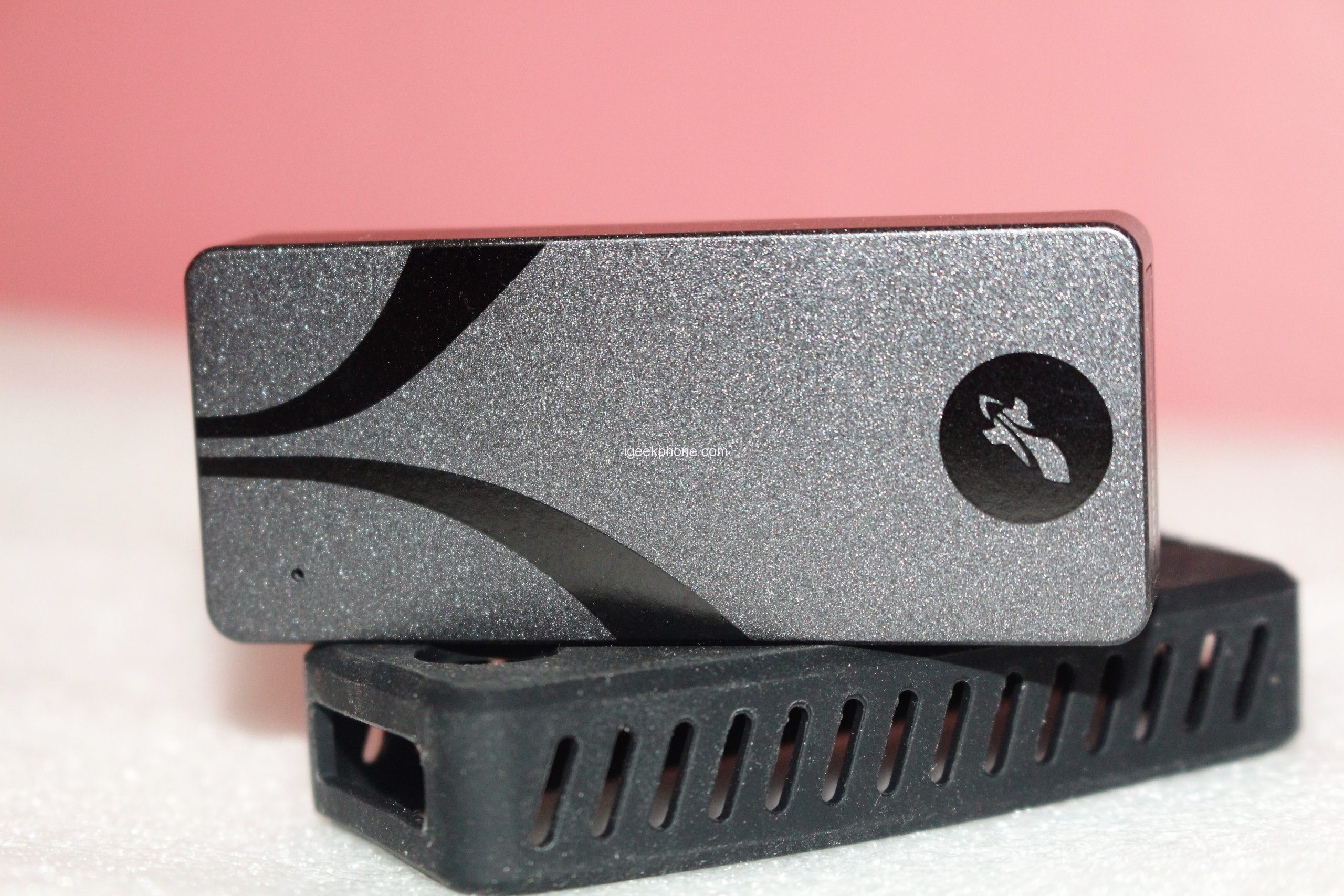
The drive is enclosed in a black silicone sleeve, providing added ruggedness and durability to protect against accidental drops and debris.
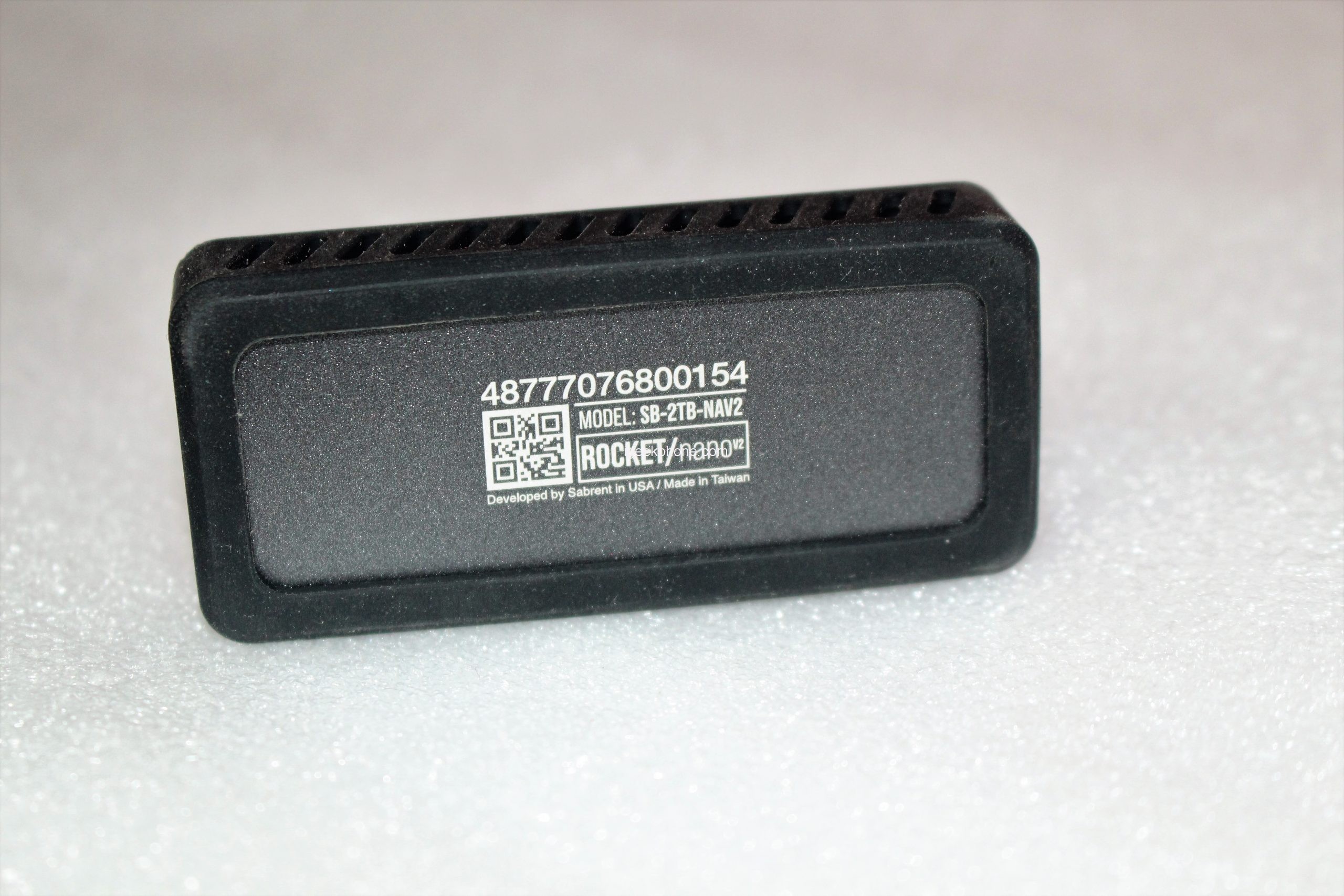
A unique serial number of the unit is located on the base.

Both sides feature cutouts to facilitate efficient heat transfer and ventilation.
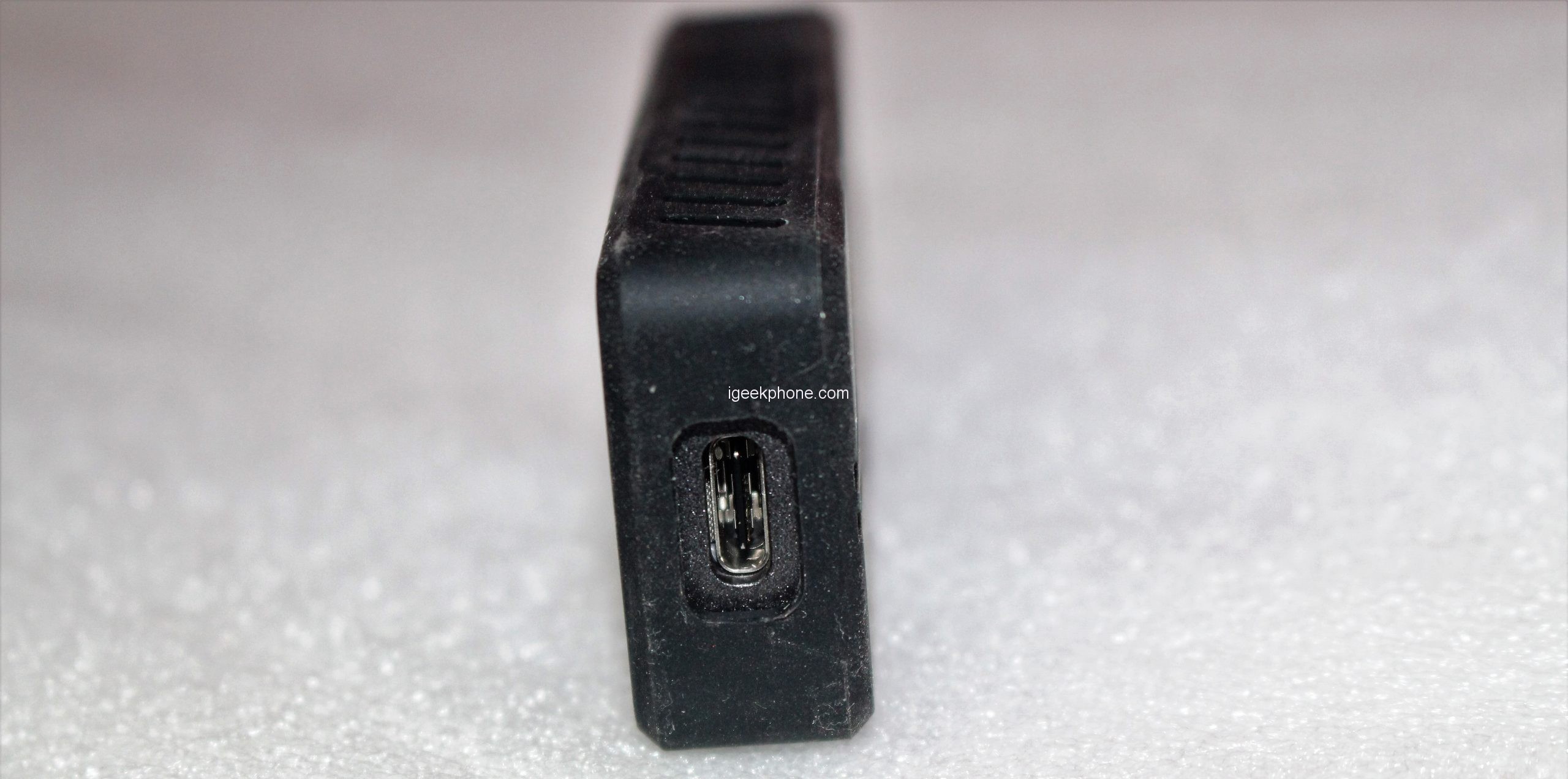
There is a cutout on the sleeve that faces the USB Type-C port.
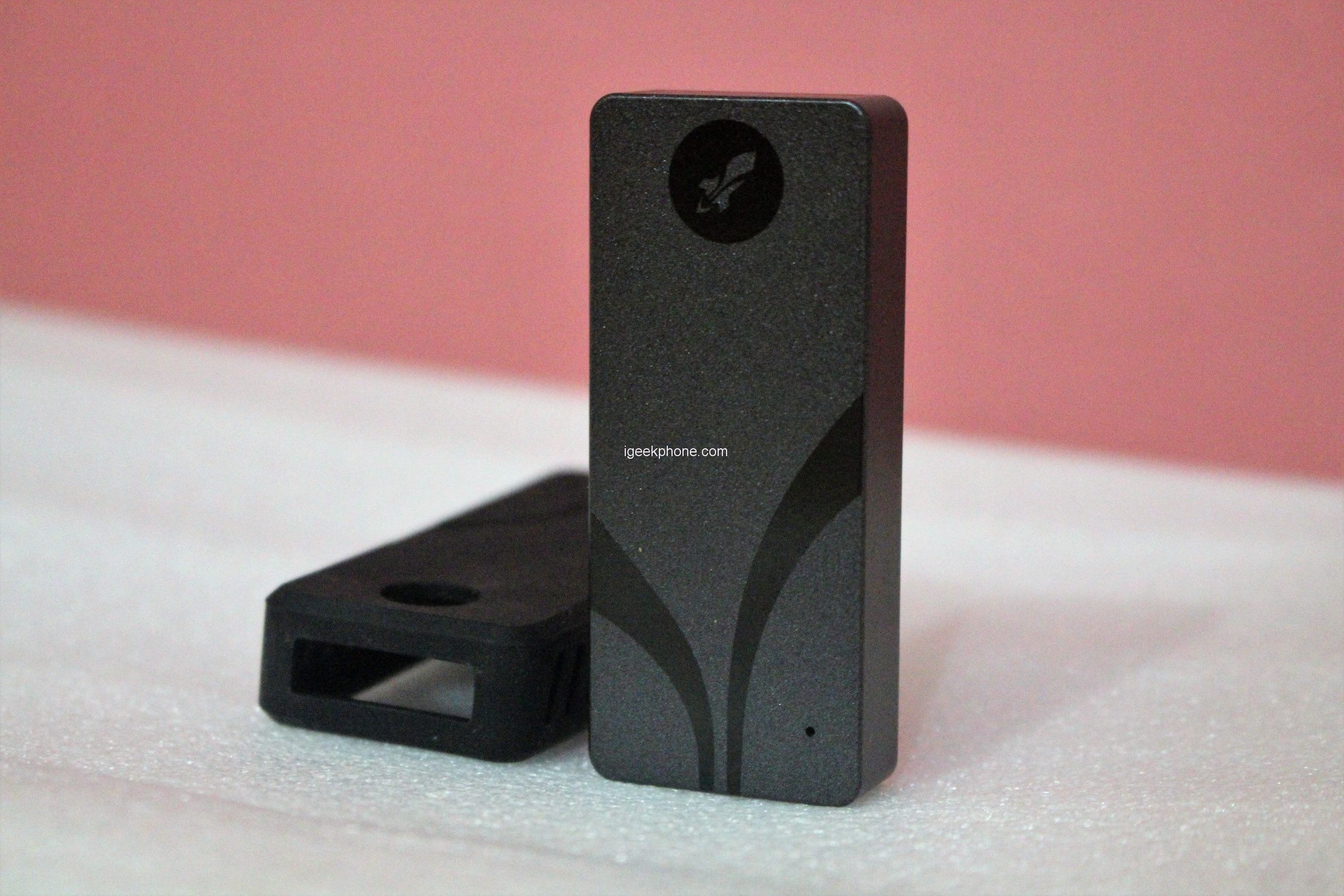
With the sleeve removed, let’s examine the main unit of the Sabrent drive. The shell or housing of the drive has been crafted from space-grade aluminum alloy using CNC machining, offering improved heat transfer and durability.
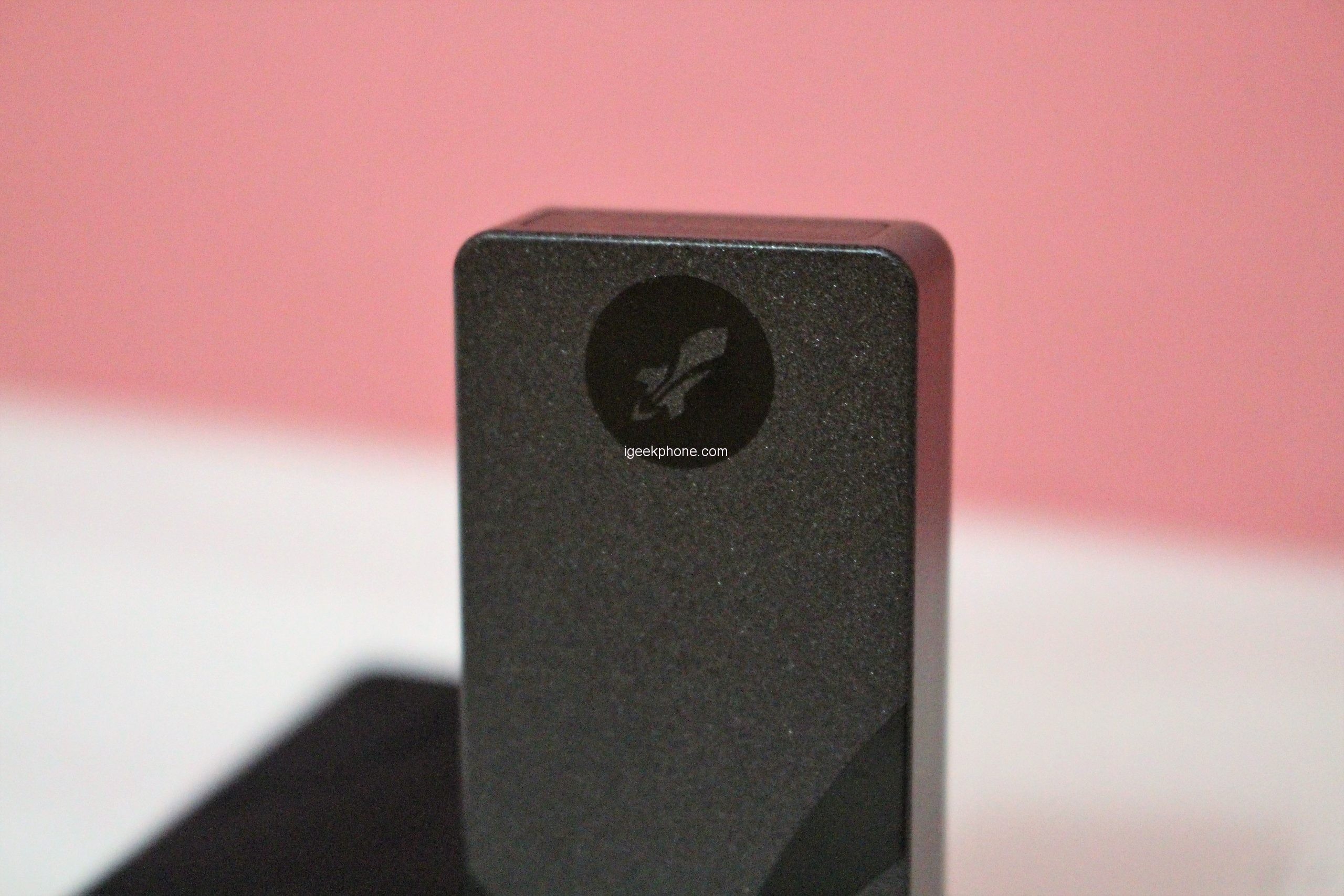
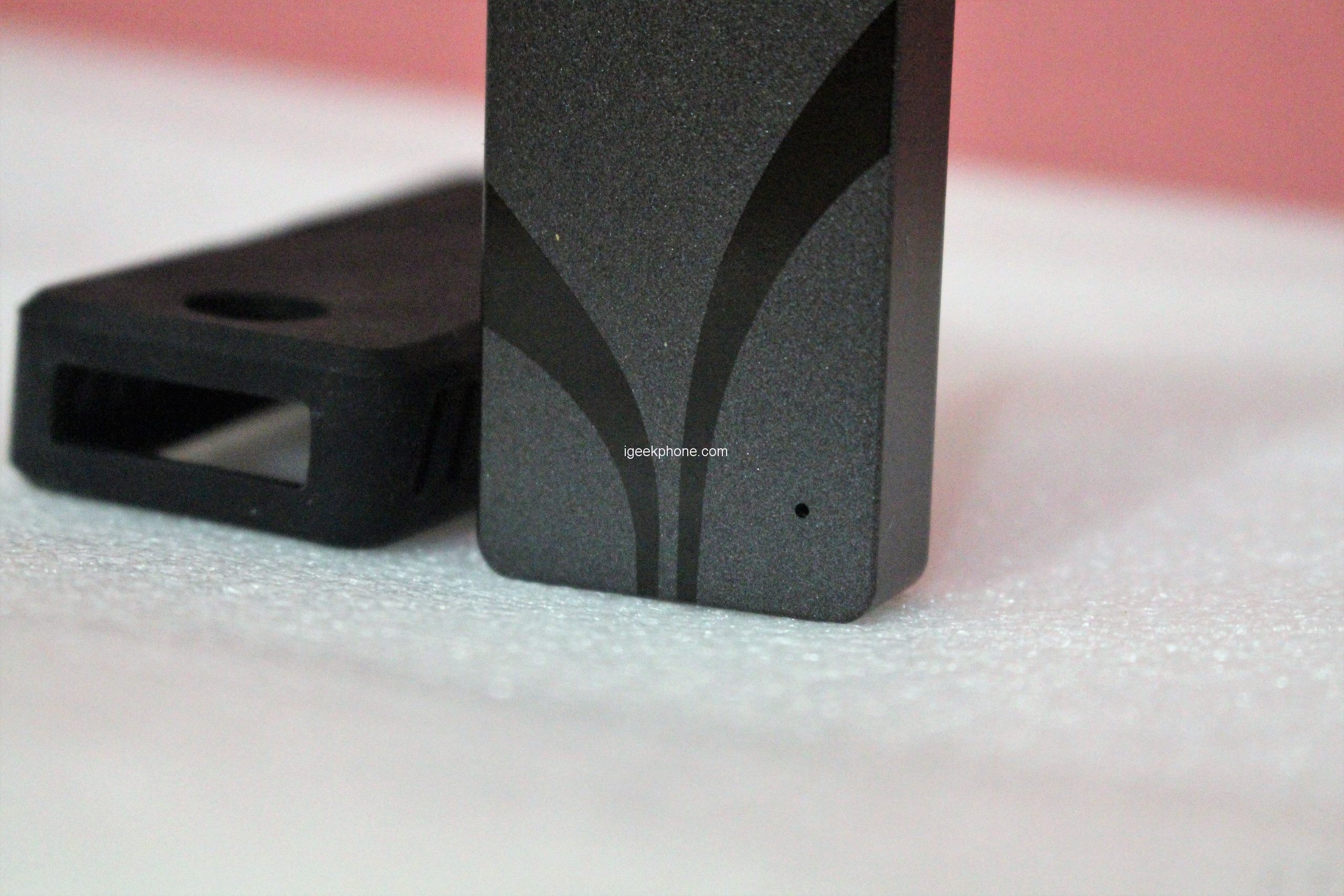
The Sabrent logo is prominently displayed on the top of the unit, and there is a white LED indicator on the bottom right to indicate drive activity.
The SSD measures just 15 x 33 x 73 mm and weighs 54 grams. Whether you decide to carry it in your laptop bag or simply in your pocket, the Rocket Nano V2 has a minimal footprint. It is, in fact, the smallest SSD ever made by Sabrent.
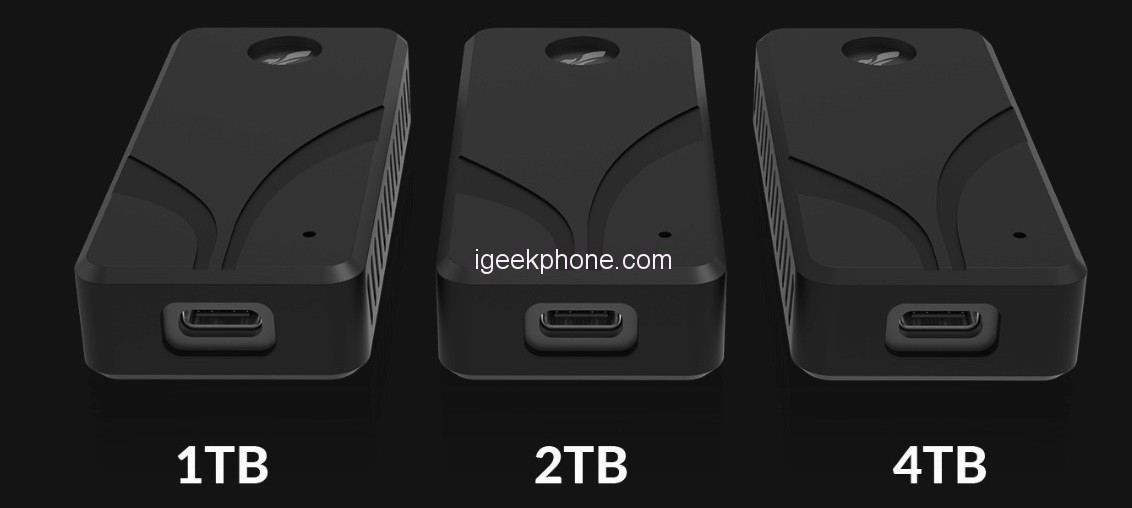
The Rocket NANO V2 series is available in three capacities from 1TB, 2TB, and an impressive 4TB model.
Benchmarking
Crystal disk info ver. 8.17.7 x64
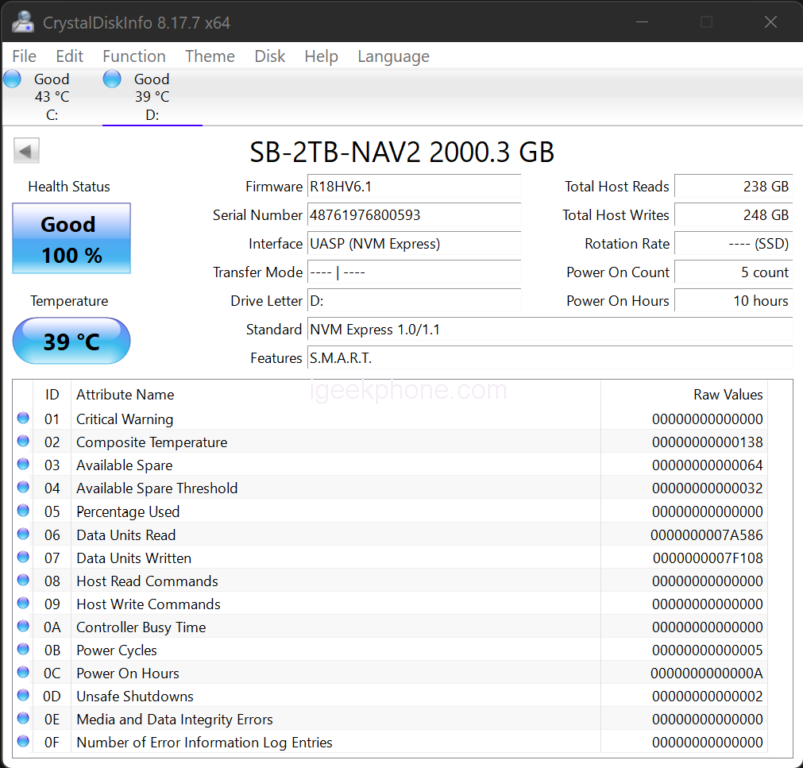
Crystal Disk Info is an excellent tool that showcases the properties and well-being of storage devices. It provides comprehensive information such as temperatures, the duration of device operation, and even the firmware version.
Atto disk benchmark ver. 4.01
The ATTO Disk Benchmark is a classic benchmark that has been around for a long time and serves as the go-to benchmark for determining manufacturer performance. This benchmark uses either RAW or compressible data, and for our testing purposes, we have selected a length of 256MB.
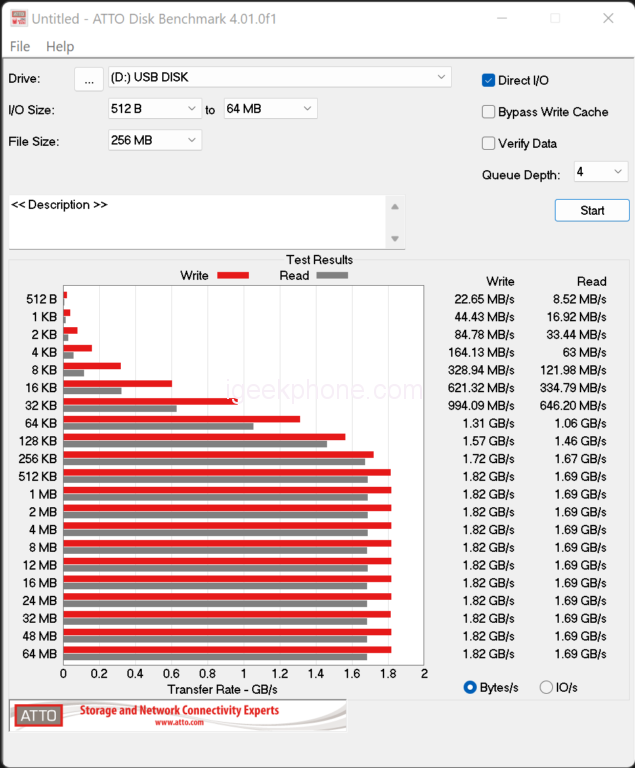
We evaluate the read and write performance of multiple transfer sizes, starting from 0.5kb and ending at 8192kb. Manufacturers prefer using ATTO’s testing method because it deals with compressible data rather than random data, which includes incompressible data and typically yields lower performance scores.
Crystal disk benchmark ver. 8. 0.4 x64
The Crystal Disk Benchmark measures the read and write performance by analyzing random data samples, which are mostly incompressible. The performance remains consistent regardless of the data used, so we have only included results obtained using random data samples.
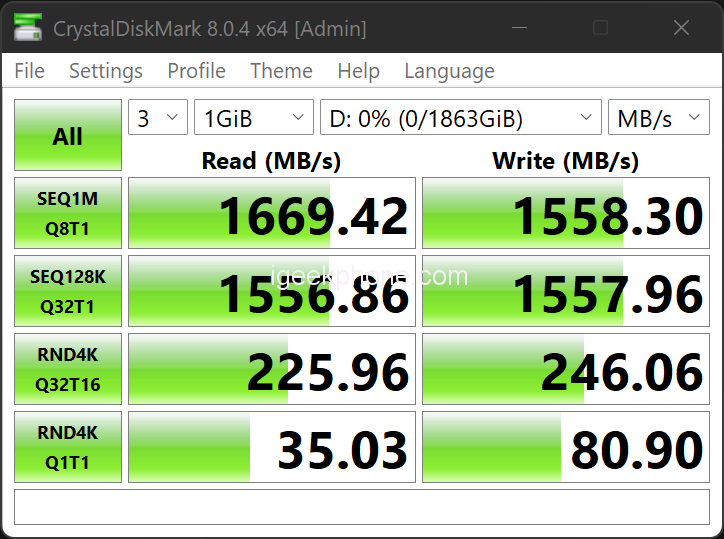
Throughput

IOPS
Anvil storage utility professional
The Anvil’s Storage Utilities (ASU) offers the most comprehensive evaluation platform for solid-state drives currently available. The benchmark not only measures throughput but also provides results for IOPS and Disk Access Times.
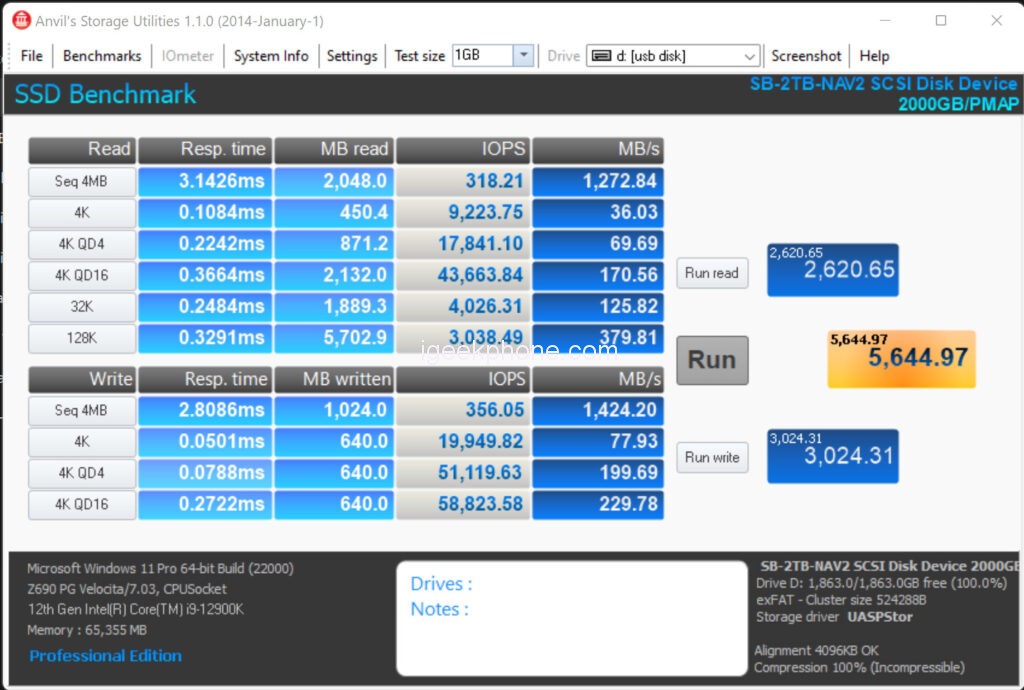
In addition to a pre-set SSD benchmark, ASU includes endurance testing and various read, write, and mixed-threaded I/O tests, which are user-friendly and easy to implement in our benchmarking process.
Txbench
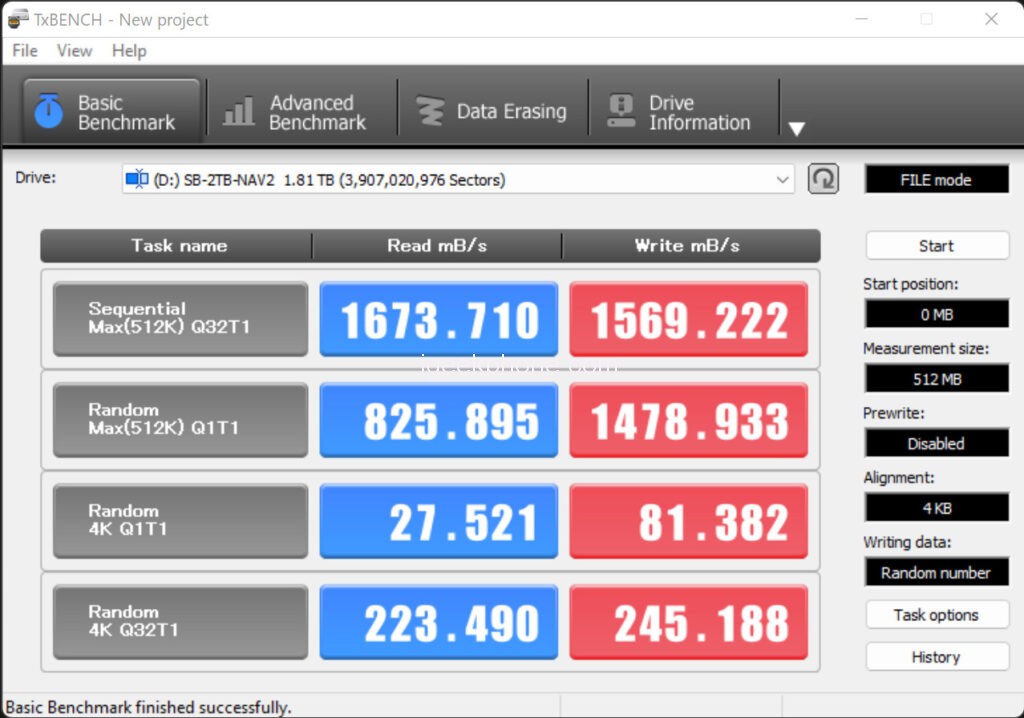
TxBench is a newly discovered benchmark tool that operates similarly to Crystal Diskmark. However, it offers several advanced features, such as advanced load benchmarking, full drive information, and data erasing options like secure erase, enhanced secure erase, TRIM, and overwriting. To access this tool, simply click on the title to download a free copy.
Aja video system disk test
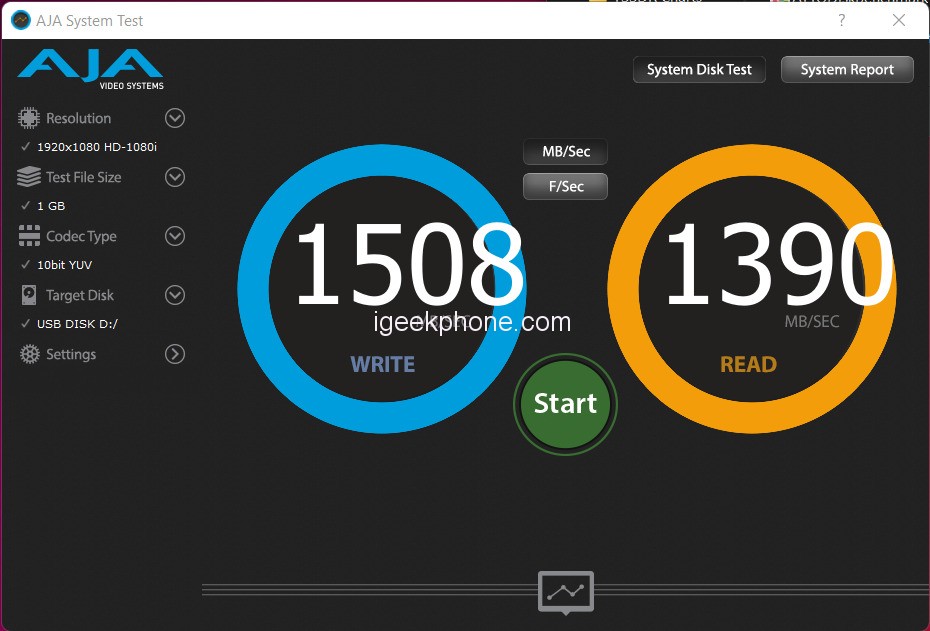
The Disk Test of AJA Video Systems is a recent addition to our testing process, measuring the speed of transferring video files with varying resolutions and codecs.
Conclusion
The Sabrent Rocket/nano V2 Portable SSD is a remarkable addition to the portable storage market. It stands out for its small size and fast data transfer speeds of up to 1.5GB/s. Add to this capacities up to 4TB, the V2 boasts an impressive build quality and a sleek appearance. These factors, combined with its exceptional performance, position the V2 for significant success in the market. However, it’s worth noting that the use of the Phison PS2251 USB 3.2 2×2 controller may limit its functionality, as the SSD does not appear to support TRIM, as indicated by our Crystal Disk Info test results.

This SSD is not the only SSD with the same characteristics as the recently released Corsair EX100U external SSD. Both it and other SSDs utilize Phison’s PS2251-18 native UFD flash controller, which is the first and fastest of its kind in the world. This flash controller does not require an additional bridge controller, making the SSD 56% more efficient compared to bridge-based devices. This technical advantage is why TRIM is not recognized as a feature of the SSD in the Crystal DiskInfo result.
Surprisingly
This is actually a positive aspect as previously TRIM would have to transfer all the data of a block and then erase it completely to make it available for future use. However, this SSD and the Phison PS2251 USB 3.2 2×2 controller, utilize SCSI (Small Computer System Interface) UNMAP. This advanced flash management system can more efficiently sanitize deleted information without having to transfer all the data and erase the entire block, unlike TRIM. This results in a more efficient process for completing the same task.
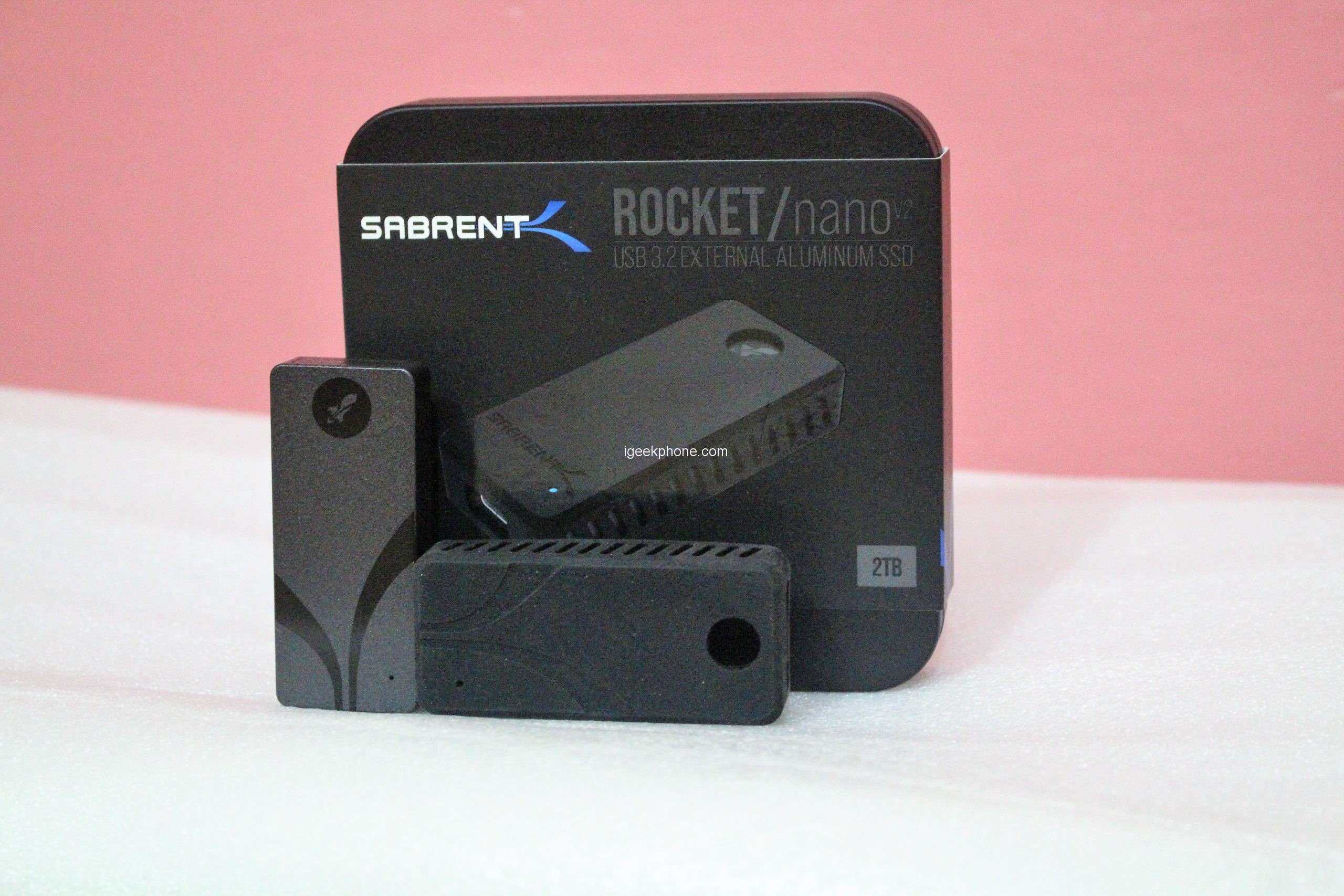
You can trust that every drive you see reviewed has been thoroughly tested and put through its paces before it reaches the reviewer’s hands, providing even stronger evidence. The Sabrent Rocket/nano V2 is an excellent investment and deserves recognition for its outstanding quality. If any flaws were not detected during the manufacturer’s testing, they would still be noticed by a few traditional reviewers and presented to the consumer for consideration before making a purchase. Kudos to Phison and Sabrent for creating such a fantastic product!
Prices
On Amazon, we see pricing for the Rocket nano V2 at $119.99 (1TB), $200.75 (2TB), and $499 for the 4TB version, which is a fantastic deal. Sabrent offers an excellent warranty program as well. The device comes with a standard 1-year warranty, but after registration, it can be extended to 3 years.
Buy From Sabrent’s Website Buy From Amazon
Do not forget to follow us on our Facebook group and page to keep you always aware of the latest advances, News, Updates, review, and giveaway on smartphones, tablets, gadgets, and more from the technology world of the future.









